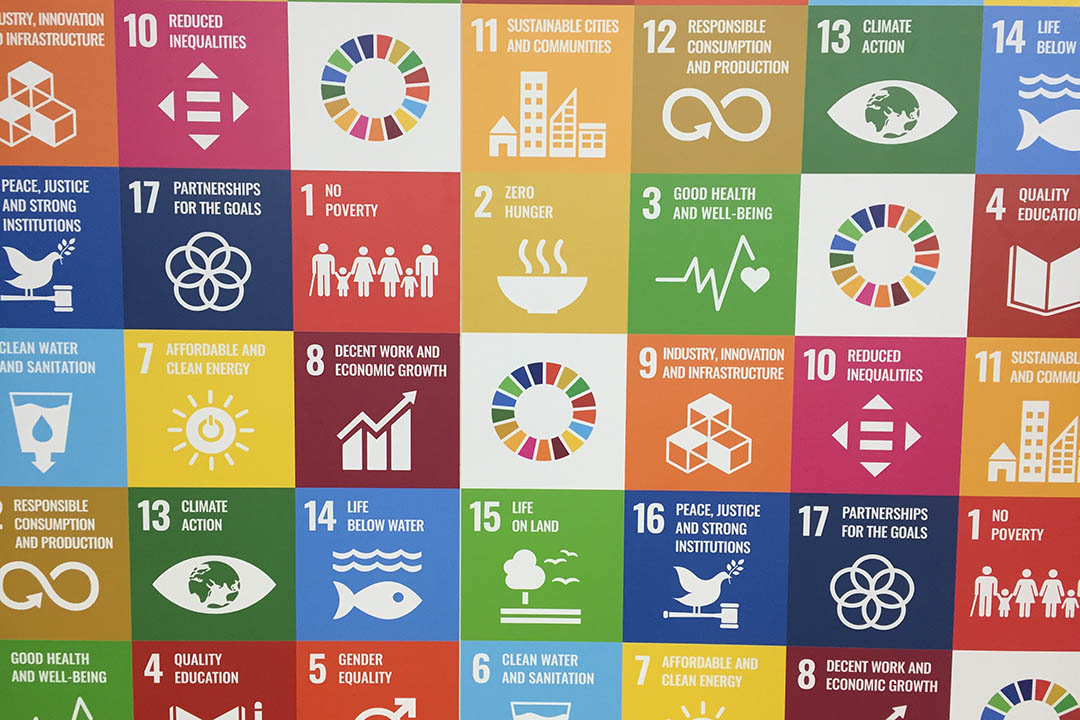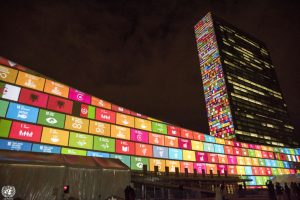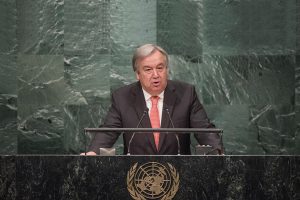Following the recently concluded SDG Summit, the SDG Lab, CEPEI, and the International Institute for Sustainable Development (IISD) hosted a panel discussion on the main takeaways from the Summit. Panelists also answered questions from the audience relating to, among other issues, priorities for the next seven years of the 2030 Agenda for Sustainable Development.
Trine Schmidt, Strategic Advisor for Global Strategies, IISD, and SDG Lab, moderated the discussion. Welcoming the participants, she said the webinar was part of the same-day Geneva SDG Day, organized by the Geneva Graduate Institute, the SDG Lab, and the UN Development Programme (UNDP), where stakeholders could discuss the outcomes of the SDG Summit.
On the main highlights and takeaways from the Summit, Edward Mishaud, Senior Advisor, SDG Lab, emphasized the SDG Action Weekend, which, along with the Summit, demonstrated that the 2030 Agenda and the SDGs remain the roadmap for sustainable development. He said although progress is not happening at the scale and pace required, we are making progress and, citing UN Deputy Secretary-General Amina Mohammed, stressed “there is water in the glass; it is not full but it isn’t empty.” Mishaud underscored the importance of constructing messages of hope and possibilities around the SDGs while at the same time creating a sense of accountability among governments.
Prisha Kumar, Youth Delegate to the UN, welcomed the momentum towards inclusion of youth but said we have a long way to go in terms of young people’s meaningful participation in decision making. She highlighted the session on youth the Major Group for Children and Youth co-organized during the SDG Action Weekend’s SDG Mobilization Day on 16 September, which challenged the status quo on youth participation. She said youth voices were mainstreamed in all the sessions on High Impact Initiatives on SDG Acceleration Day on 17 September. Kumar highlighted the Global Youth Position Paper for the SDG Summit, and emphasized the continued importance of expanding youth participation, including in the 2024 Summit of the Future.
Philipp Schönrock, Executive Director, CEPEI, emphasized that the Global South, including Africa and Latin America, is taking a leadership position on the SDGs, as evidenced by the outcomes from the meetings of the G-77/China and the Group of 20 (G20). He outlined two “shifts” in the SDG acceleration agenda: a move towards financing for development (FfD) and global public investment; and a holistic view of sustainable development and climate action as one agenda.
Lynn Wagner, Senior Director, Tracking Progress, IISD, highlighted the SDG Summit as an essential part of the 15-year process to reach the SDGs. She emphasized the importance of reintegration of the Goals at the highest level as many who were leaders at the time of the SDGs’ adoption are no longer in office, and cited the leaders’ presence at the Summit as evidence of adoption of the SDGs as part of their platform.
Wagner noted that reform in the international financial architecture is no longer a niche aspiration but reflection of an understanding of what we need to do to achieve the SDGs. She welcomed the International Monetary Fund (IMF) Managing Director’s participation in the Summit, and said we need to start thinking about how some of her ideas, including reallocating harmful subsidies to free up fiscal space and re-channeling Special Drawing Rights (SDRs) so vulnerable countries can benefit from better lending conditions, could be integrated in the SDG framework.
On what lacked or was missing from the Summit, Mishaud lamented the limited references to future generations, especially given the focus on future generations of one of the UN Secretary-General’s 11 Our Common Agenda (OCA) policy briefs. He emphasized that, to deliver systemic shifts required, we need systemic thinking.
Kumar called for less tokenistic, more meaningful youth engagement in high-level processes and regretted that stakeholders, including youth, had no voice on the SDG Summit’s political declaration.
Schönrock wished Member States had brought concrete proposals on holistic actions and solutions to achieve systemic shifts in the next seven years. He called for UN reform that reflects the level of need and for holding Member States accountable for their pledges. He also said the Summit of the Future was a distraction that “left a lot of things for next year.”
Wagner said all high-level meetings offer space to push things forward, while acknowledging frustration about having to wait for the next big summit when there is an immediate need for answers.
On noteworthy commitments and initiatives, Wagner highlighted the SDG Action Weekend as an important space to reflect on the 12 High Impact Initiatives, on how to replicate lessons learned, and on how to ensure Member States follow through on their voluntary commitments, such as Energy Compacts.
Schönrock said High Impact Initiatives were the most concrete example of how Member States and stakeholders can come together but cited questions on operationalization and financing. He said we need to support the UN in these Initiatives.
Kumar underscored Member States’ renewed commitment to the SDGs despite the changing global dynamics and highlighted youth’s role in ensuring Member States’ accountability. She said the G20 Summit in New Delhi featured strong messages on the SDGs, setting the tone for the Summit.
Mishaud cited the UN Secretary-General’s emphasis on accountability for commitments made during the Summit already at the next year’s High-level Political Forum on Sustainable Development (HLPF). He also recognized the SDG Action Weekend as an important initiative that provided informal space for a broad cross-section of stakeholders to engage.
On specific Goal prioritization, the panelists agreed on the importance of a holistic, integrated approach that builds on linkages and synergies among the SDGs.
Wagner stressed the need to build on the linkages among the SDGs from the outset, cautioning against seeing co-benefits as a by-product of action on a specific Goal.
Kumar said local-level prioritization has a ripple effect across all SDGs.
Warning against conversations about a post-2030 agenda, Schönrock reiterated the need to “stick to the plan.”
Among priorities for the next seven years, the speakers highlighted action, governance, implementation, and policy coherence. Climate, biodiversity, poverty reduction, gender equality, inclusion, and justice were among the most prominent priorities members of the audience identified in a poll.
In conclusion, Schmidt thanked the participants. She said the SDG Summit showed us what we need to do, and the Summit of the Future in 2024 will focus on how we can get this done.
The online discussion took place on 28 September 2023. The SDG Lab, CEPEI, and IISD have helped decision makers and stakeholders navigate high-level discussions on sustainable development by convening pre- and post-HLPF webinars since 2020. [SDG Summit Debrief] [SDG Knowledge Hub Story on Pre-SDG Summit Dialogue]




